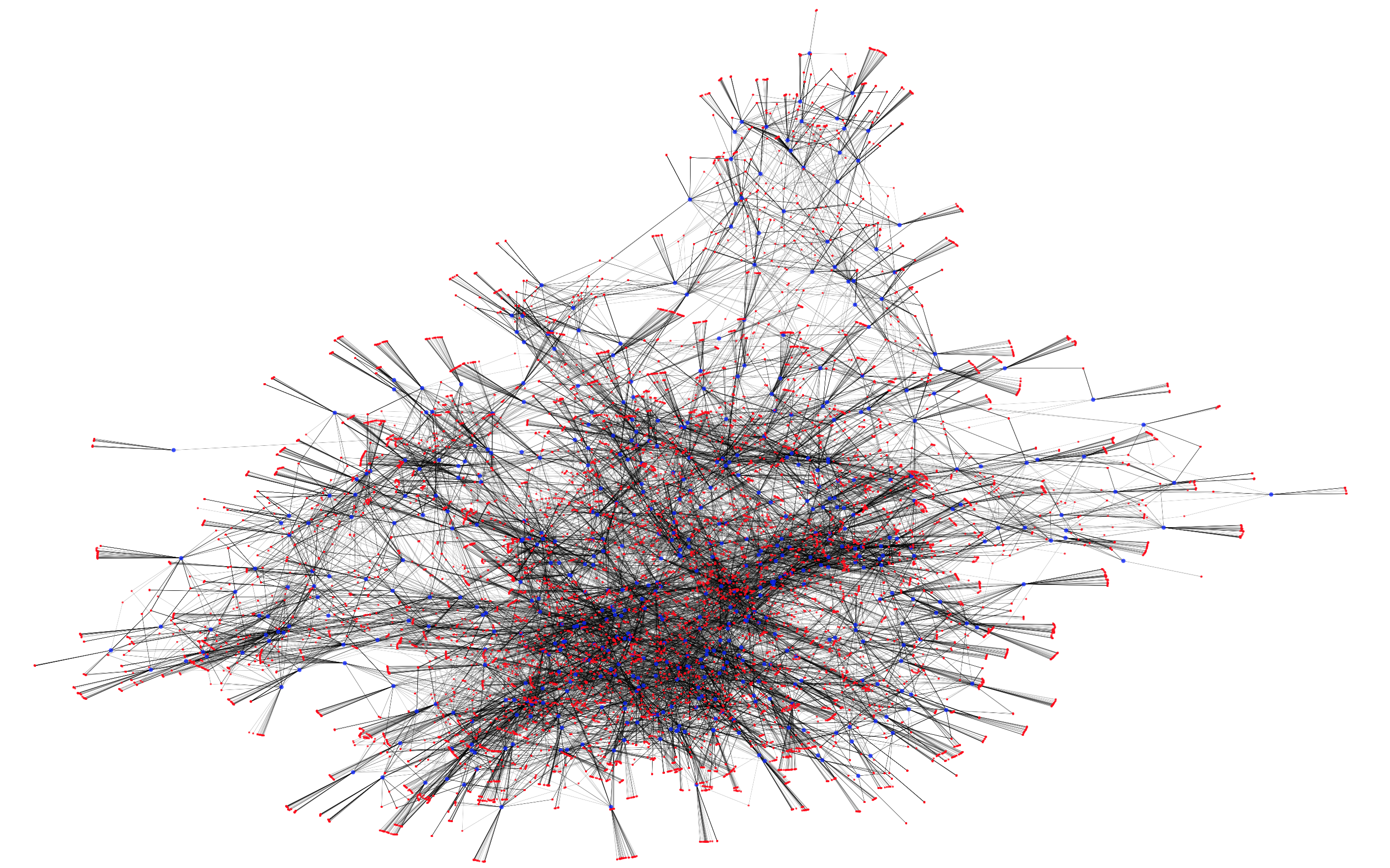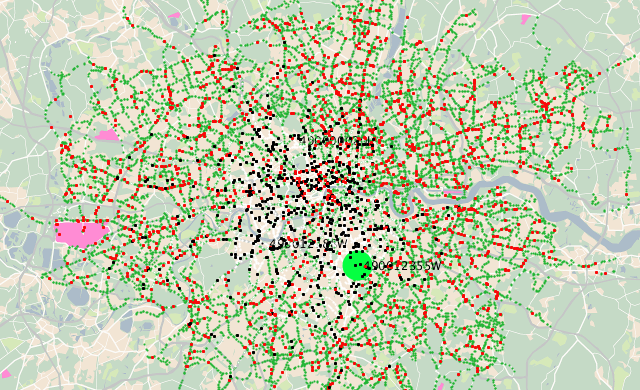Pollination Networks
When a pollinator comes in contact with a plant – it collects or dissipates pollen; in analogy to data – this can be a viable model for digital communication across distributed networks.
When a pollinator device is in close proximity to the sensor, they exchange data. Most distributed networks rely on sensors to communicate between themselves, imposing limitations on the distance between sensors, hardware requirements and power supply. In a pollination based network, the sensor is only concerned with sensing and is practically dormant, communication-wise, until a pollination event occurs. Reducing the hardware and power thresholds for a sensor, allows the cost to drop and enables more data with finer grains within a similar budget. This network topology is a subtype of a Delay Tolerant Network (DTN) in the sense that there is no end to end transmission path between nodes and therefore a store – carry – forward paradigm is used.
In the studied use-case, the London bus system is used as the infrastructure for the data transfer, where buses function as pollinators - ferrying the data from station to station. An Agent-Based simulation tool was created to examine the data flows and a novel routing algorithm, drawing inspiration from Adaptive Foraging (AF) strategies, was developed along with two additional routing algorithms implementations - with the AF algorithm outperforming them in efficiency, overhead and average delay.
London, UK
Prototype 2017
@ Thesis project for MSc AC at the Bartlett, UCL

